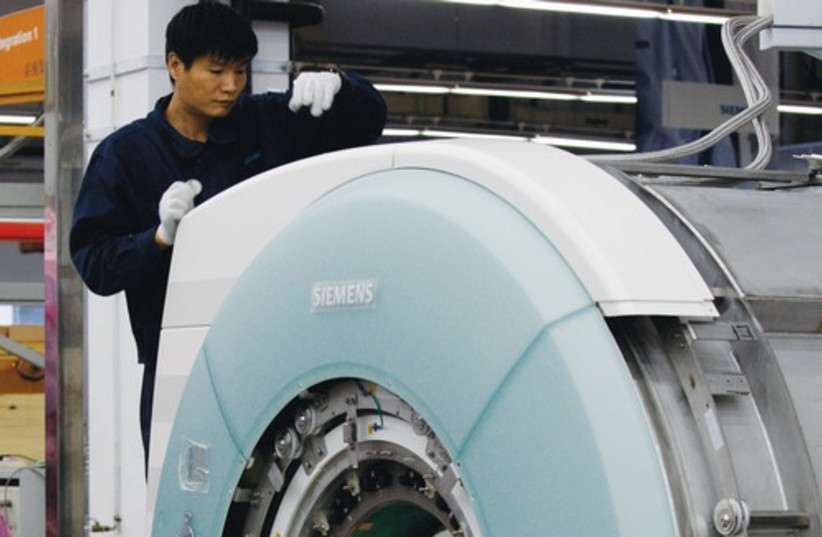As a child back in the 70s, I remember watching cartoon episodes of The Jetsons on television and marveling at how people ate dinner by swallowing a pill. And I thought, “If we’re headed in that direction, wow! I can’t wait!”
Well, here we are. Technology has changed everything. Advancing at an exponential pace, it has completely changed our world, work, families and lifestyles. With technology we order pizza, drive, listen to music, interact with each other and more.
But in healthcare, innovation seems to be focused more on enabling and monitoring care than on the treatment itself. Software that improves telemedicine is accepted with open arms. The same goes for scheduling appointments, aggregating medical records and diagnostics. But when it comes to therapies themselves, sometimes science-backed products have a hard time penetrating mainstream healthcare systems. New treatments are often met with pushback from large healthcare organizations and insurance providers, impeding their ability to reach the patient. As a result, patients continue to pop pills for every medical condition, hoping they will provide relief and improve their conditions while not imposing side effects.
The line of thinking is consistent with the old adage, “If it ain’t broke, don’t fix it.” Drugs work, so why mess around?
There’s only one problem: Drugs don’t always work. Not for as many people as they should. And, in fact, for a significant population, drug-based solutions may cause complications. Indeed, the slow and not-so-steady embrace of new technologies is anathema to many patients along their treatment journeys. We must strive to ease the uphill battle that new technologies often face when being brought to market.

Zooming in on neurology
The slow adoption of new technologies is seen primarily in the treatment of chronic conditions, and as an industry leader in migraine treatment, I see this specifically in the field of neurology.
The mainstream approach to migraine treatment has been “one-size-fits-all” drug-based medications, which may produce unpleasant or intolerable side effects and may lead to medication-overuse headaches. While patients are eager to try more technologically advanced treatments and many physicians understand their benefits, healthcare systems and health insurance organizations often hesitate, usually out of technophobia and ultra-conservatism.
Advanced neuroscience research has unleashed numerous innovative therapies offering high efficacy and ultimate safety for patients. New technologies, such as the advent of wearables devices, have moved healthcare toward more personalized and digitally connected treatments, allowing for more patient-controlled therapies. Scientific advancements that enable miniaturization of electronic components and novel types of materials have likewise shifted the standards and created a new generation of medical devices.
Israel, in particular, is leading the way in drug-free treatments by producing new medical devices, such as TigerTriever by Rapid Medical for stroke recovery, and weight loss treatment by Epitomee. Theranica is pioneering the use of neuromodulation for migraines through the development of FDA-cleared Nerivio. The arm-worn device provides a well-tolerated, non-pharmaceutical therapy to patients, and has been proven effective based on extensive clinical research.
And these are only a few examples. The industry is rife with scientists pushing the boundaries of knowledge and start-ups developing groundbreaking products – the technology is out there! The problem lies in the lack of availability to patients and the slow adoption into clinical practices.
Challenges to the adoption of new technologies
Generally more conservative in their approaches to treatment, healthcare organizations and insurers are often slow to embrace new technology. They have real concerns about changing common medical practices. When changing any workflow, there are hurdles to overcome, and many are reluctant to do so in an industry with such a slim margin of error. But this cannot hold us back from the benefits that technology offers, and while there will be challenges, ultimately more patients will benefit from the adoption of technology. For that reason alone, we encourage patients to support innovation by asking their physicians about non-drug treatment options.
Following the COVID-19 pandemic, in which we saw unprecedented pressure on the healthcare industry, we understand the need for a highly responsive medical system and the benefits of digitally enabled medicine. But the development of new treatments alone is not enough to change the system. Making these inventions mainstream and accessible to patients requires an open mind from healthcare organizations, practitioners and insurers. The well-being of patients depends on the ability of the healthcare industry to evolve and embrace new technologies and treatment paradigms – and time is of the essence!
One of the reasons I loved The Jetsons was that it showed a world of imagination, of untethered innovation focused on improving quality of life. It’s not lost on me that 50 years later, after being amazed by Elroy Jetson eating his lasagna in the form of a capsule, I spend my days developing alternatives to the abundance of pills people consume. But if that is what the world needs, that’s the future I want to see.
The writer is CEO and co-founder of Theranica, a bio-medical technology company developing advanced electroceuticals like Nerivio® for migraine and other pain disorders. He received a master’s degree in electrical engineering from Santa Clara University, and a BA in electrical engineering from the Technion – Israel Institute of Technology.
Alon Ironi will present at The Jerusalem Post Annual Conference. To watch live on October 12 (or see the recording anytime thereafter), click here.
